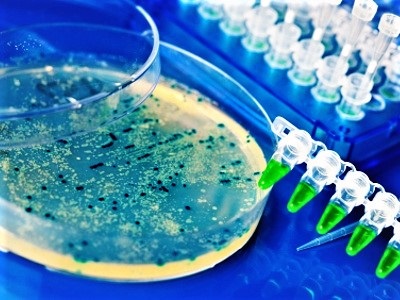Plasmid DNA Manufacturing Market Expected To Reach US$735.67 Million By 2023
Market Overview:
Plasmid DNA manufacturing is a process that involves the production of large quantities of plasmid DNA for various applications, such as gene therapy, vaccines, and protein production. Plasmid DNA offers several advantages, including ease of manufacturing, stability, and the ability to express large amounts of protein. With the increasing demand for advanced therapeutics and biologics, the need for plasmid DNA manufacturing is also growing. The market is driven by factors such as the rising prevalence of genetic diseases, technological advancements in biotechnology, and increased funding for research and development activities in the field of gene therapy.
Market Key Trends:
One key trend in the plasmid DNA manufacturing market is the increasing adoption of gene therapies for the treatment of genetic disorders. Gene therapy holds great promise in the field of healthcare, as it offers the potential to cure genetic diseases by replacing or modifying defective genes. This has led to a growing demand for plasmid DNA manufacturing, as plasmids are used as vectors to deliver therapeutic genes into target cells. The development of novel gene editing technologies, such as CRISPR-Cas9, has further boosted the demand for plasmid DNA manufacturing. These advancements have paved the way for more precise and efficient gene therapies, driving the growth of the plasmid DNA manufacturing market.
The global Plasmid DNA Manufacturing Market Growth is estimated to be valued at US$735.67 Million in 2023 and is expected to exhibit a CAGR of 22.5% over the forecast period 2023-2030, according to a new report published by Coherent Market Insights.
Segment Analysis:
The plasmid DNA manufacturing market can be segmented based on end user and application. In terms of end user, the dominating sub-segment is the biotechnology and pharmaceutical companies. This is mainly due to the increasing demand for plasmid DNA in the development of gene therapies, vaccines, and biologics. Biotechnology and pharmaceutical companies extensively use plasmid DNA for research and development purposes, as well as in the production of therapeutics. These companies have the financial resources and expertise to invest in plasmid DNA manufacturing, making them the dominant end users in the market.
Key Takeaways:
This growth can be attributed to several factors. Firstly, there is a rapidly growing demand for gene therapies and biologics, which require plasmid DNA manufacturing. The advancements in genetic engineering and personalized medicine have increased the need for plasmid DNA for the delivery of therapeutic genes. Additionally, the increasing prevalence of genetic disorders and chronic diseases has fueled the demand for gene therapies, further driving the growth of the plasmid DNA manufacturing market.
From a regional perspective, North America is the fastest-growing and dominating region in the plasmid DNA manufacturing market. The region has a well-established biotechnology and pharmaceutical industry, along with a high demand for gene therapies and biologics. Moreover, North America has favorable regulations and policies supporting genetic research and development, which further boosts the market growth in the region. The presence of key players such as Cobra Biologics and Pharmaceutical Services, VGXI, Inc., and Aldevron in North America also contributes to the dominance of this region in the market.
Key players operating in the plasmid DNA manufacturing market include Cobra Biologics and Pharmaceutical Services (Charles River Laboratories), VGXI, Inc., Aldevron (Danaher), Kaneka Corporation, Nature Technology, PlasmidFactory GmbH & Co. KG, Cell and Gene Therapy Catapult, LakePharma, Inc., MeiraGTx Limited, Eurofins Genomics, Vigene Biosciences, Luminous BioSciences (LBS), LLC, GenScript, GENEWIZ, Creative Biogene, Akron Biotech, Biomay, JAFRAL Ltd., WuXi Biologics, GeneImmune Biotechnology Corp., Lonza, Greenpak Biotech Ltd., Luina Bio (AcuraBio), Ajinomoto Bio-Pharma, Synbio Technologies, Genopis Inc., Altogen Biosystems, Puresyn, Inc., Cepham Life Sciences, Catalent, Inc., Biomiga, and Waisman Biomanufacturing. These key players have a strong presence in the market, offering a wide range of plasmid DNA manufacturing services, and contribute significantly to the growth and development of the market.




Comments
Post a Comment